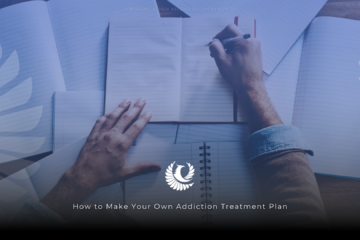If someone you love struggles with drug or alcohol addiction, you may feel some sort of responsibility to help them. You’re likely worried about their well-being and how much worse their situation will get if they don’t seek treatment. Unfortunately, many people who struggle with addiction either refuse to seek help or are in denial that they need help in the first place.
Dealing with someone who won’t get the help they need can be frustrating–so much so that you may be tempted to take matters into your own hands. Families and friends of addicts regularly find themselves wondering how they can help and whether or not they can force their loved ones to go to rehab.
Can You Force Someone into Rehab in New Mexico?
Getting someone battling addiction to enter rehab in New Mexico can be tricky unless they voluntarily check into a facility. 37 states and the District of Columbia have laws permitting individuals to force someone to go to rehab. Some states, such as Florida, have specific laws like the Marchman Act that outline a process through which an individual can be forced to attend a substance abuse treatment program. Other states have involuntary commitment laws that permit friends and family members to file a petition for a loved one to be committed to a treatment facility for mental illness or substance abuse.
While New Mexico has involuntary commitment laws for serious mental illness (SMI), it is one of few states that does not have formal processes or involuntary commitment laws for substance abuse. As a result, you may be unable to force someone to go to involuntary rehab in New Mexico unless you can prove a serious mental illness.
Other states that do not have involuntary commitment processes for substance use disorders include Alabama, Arizona, Idaho, Illinois, Maryland, New Hampshire, New Jersey, Nevada, Oregon, Utah, and Wyoming.
Involuntary Commitment Laws in New Mexico
New Mexico Statutes Chapter 43 outlines involuntary commitment procedures for those with mental health and developmental disabilities. The law makes no mention of substance abuse, alcoholism, or addiction.
Under N.M. Stat 43, any who believes someone is suffering from a mental disorder and is at risk of harming themselves or others may request the district attorney to investigate. A hearing is conducted, and if the court determines necessary, they may commit the adult for a 30-day period of evaluation and mental health treatment services.
The court must find that:
- The individual is likely to harm themselves or others
- The person needs and will likely benefit from treatment
- The treatment proposed aligns with the client’s needs and is consistent with the least drastic means principle
An emergency evaluation may also be ordered at the request of a peace officer, jail or detention facility, licensed physician, or law enforcement officer. There must be probable cause to believe the person in question is in need of involuntary assessment and treatment. The individual still has a right to a hearing, even in emergency situations.
If an individual’s situation meets the criteria for involuntary commitment, you may be able to force them, by law, into getting an evaluation and inpatient treatment at a psychiatric facility. After all, there is a substantial overlap between mental health crises and substance abuse issues. However, for someone to recover, they must receive treatment from a program that is equipped to treat substance abuse issues–not just mental illness.
Is Forced Rehab a Good Idea?
Using involuntary commitment laws to make someone go to rehab should always be a last resort. Being involuntarily committed to rehab can cause people to become resentful and resistant toward treatment, but in some cases, it can save lives. It’s important to evaluate your loved one’s situation carefully and do what is best for them.
Oftentimes, a person can be convinced to go to rehab with the help of an interventionist or addiction specialist. Whether it’s in the format of a staged intervention or a casual discussion, working with a professional is the best way to get your loved one into rehab. Addiction specialists understand the mind of someone struggling with addiction and they can provide valuable insight and information in a way that family members cannot. Get your loved one on the phone with a treatment professional by calling Ascend Recovery Centers now.
How to Help an Addicted Loved One
If your loved one is struggling with addiction but you’re not ready to go the legal route, there are steps you can take to persuade them to get help.
- Set boundaries – Clearly communicate your limits and the consequences if they continue their addictive behavior. For example, you may decide not to provide financial support or allow them to stay in your home if they’re not actively seeking help.
- Express concern and support – Offer your support and encouragement as they consider getting help for their addiction. Be empathetic and non-judgmental, showing an understanding and compassion for the challenges they may be facing.
- Educate yourself – Take time to learn about addiction, including its causes, effects, and available treatment options. Understanding the nature of addiction can help you approach the situation with empathy and provide more effective support to your loved one.
- Stage an intervention – While working with an interventionist, recruit friends and family to help you stage an intervention. An intervention is a great way to get your loved one to understand the gravity of their situation.
Find Support Today
If you love someone who is addicted to alcohol and drugs, please contact the team at Ascend Recovery Centers today to learn how we can help. We understand that addiction is a complicated and emotional journey. That’s why we’re dedicated to providing comprehensive care options to meet the unique needs of each and every individual seeking care. Our team of compassionate professionals is committed to helping those struggling with addiction find their path to recovery. Don’t wait any longer for the support you need–call now to get started.








